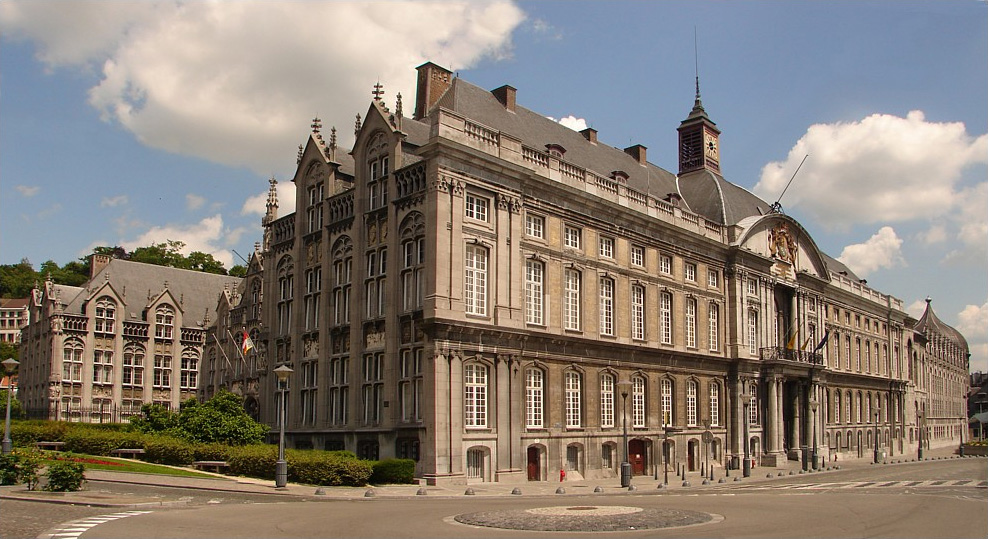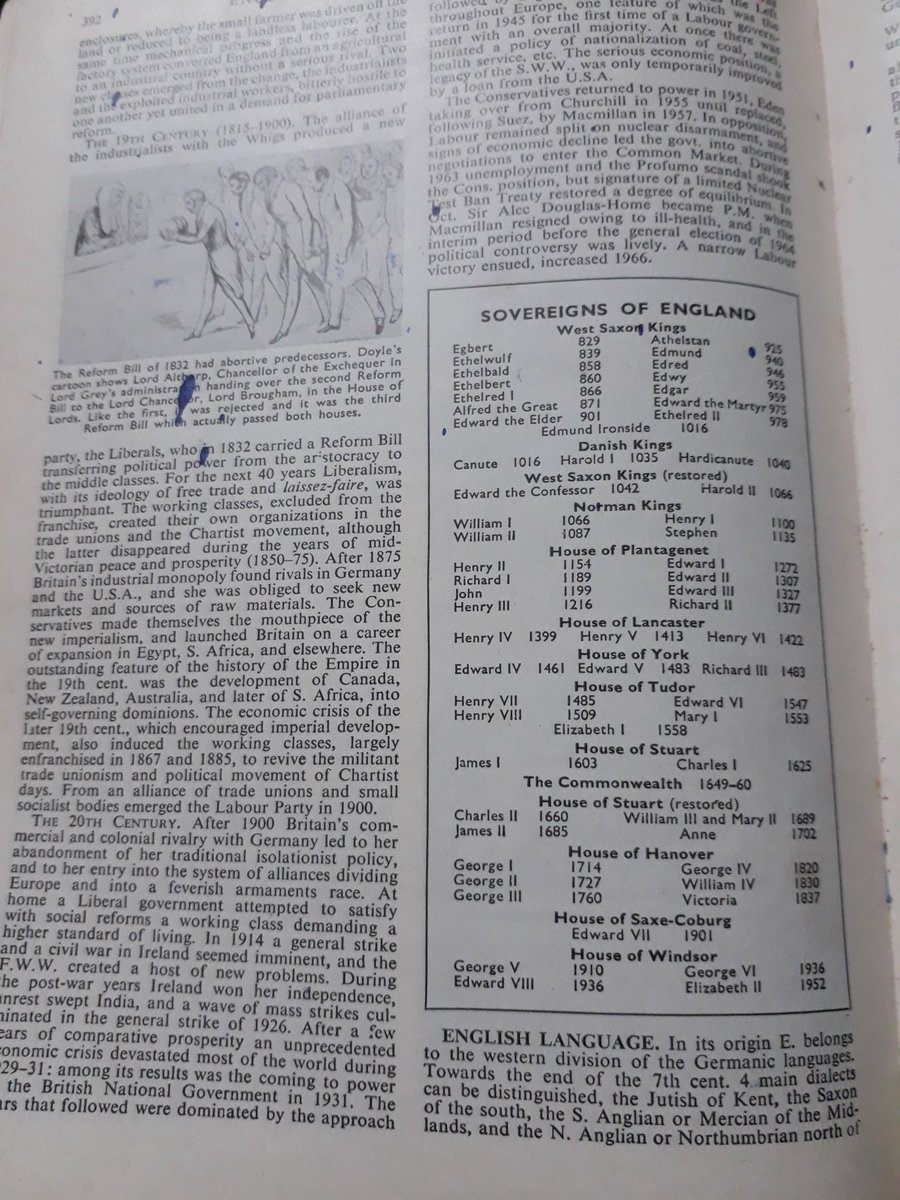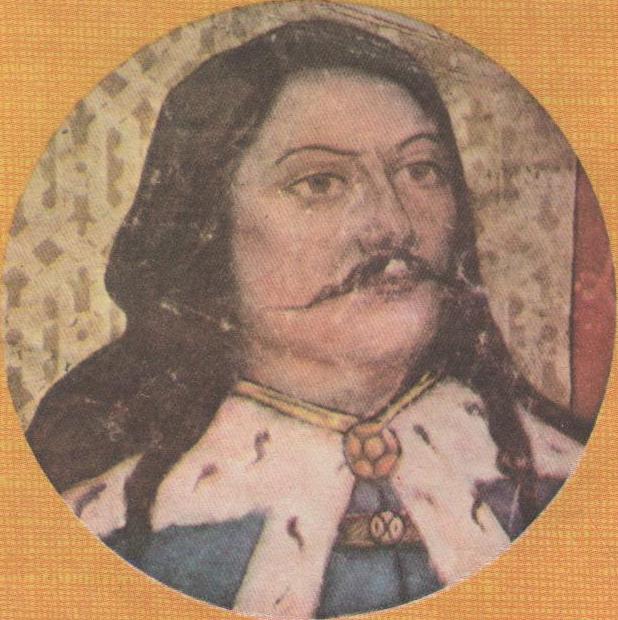
A Princess married off to a foreign land, the beginning of a long term relation between two regions, not existing at the time.
A former Queen who ran away with a noble.
A King who sent his daughter to the farthest corner of his realm.
Story in the evening ...
A former Queen who ran away with a noble.
A King who sent his daughter to the farthest corner of his realm.
Story in the evening ...
https://twitter.com/Arby_K/status/1462971713784713222
Judith was born around 844 to King Charles of West Francia and Ermentrudis of Orleans. In 843, after three years of civil war, the Carolingian Empire had been divided into three by the sons of Emperor Hludowic. Charles, the youngest, had received the western part. 1/10 
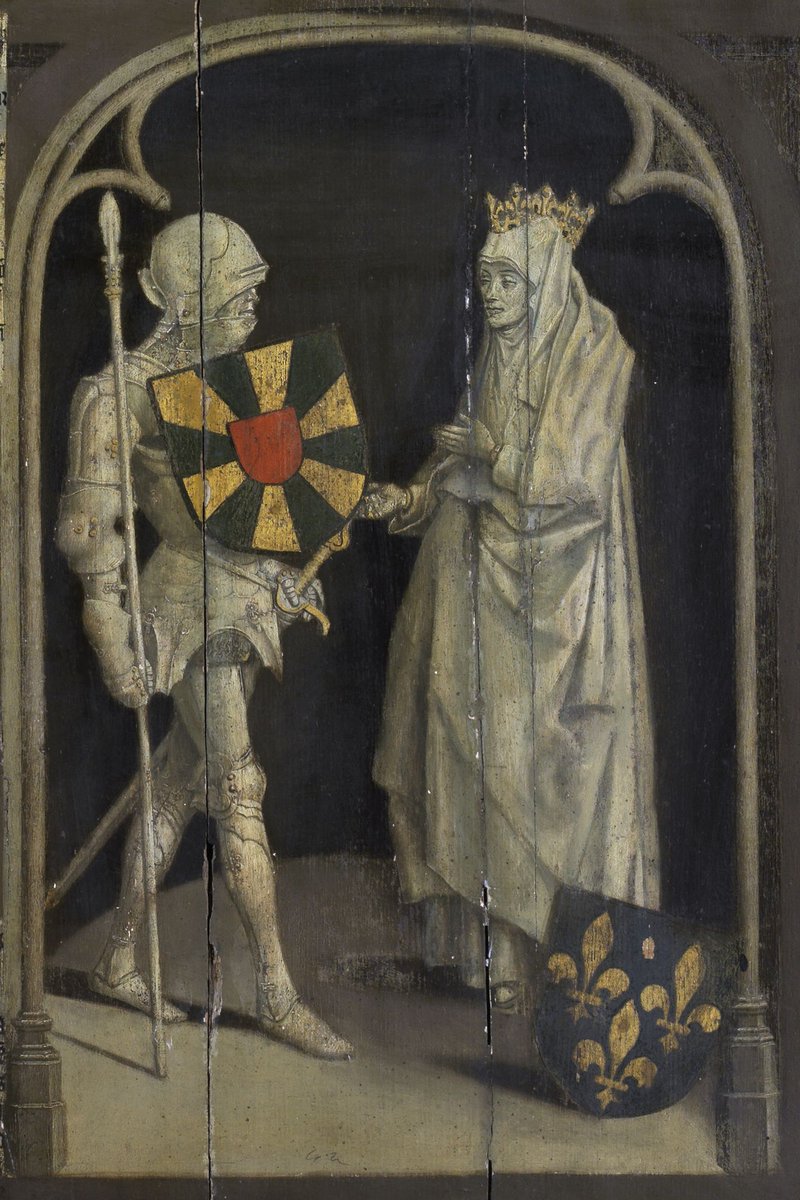
While Charles struggled with rebellions, he got an offer for an alliance from across the Channel. King Æthelwulf of Wessex was returning from a visit to Rome and married Judith in 856. She was crowned Queen of Wessex, unlike her husband's earlier wives. 2/10 
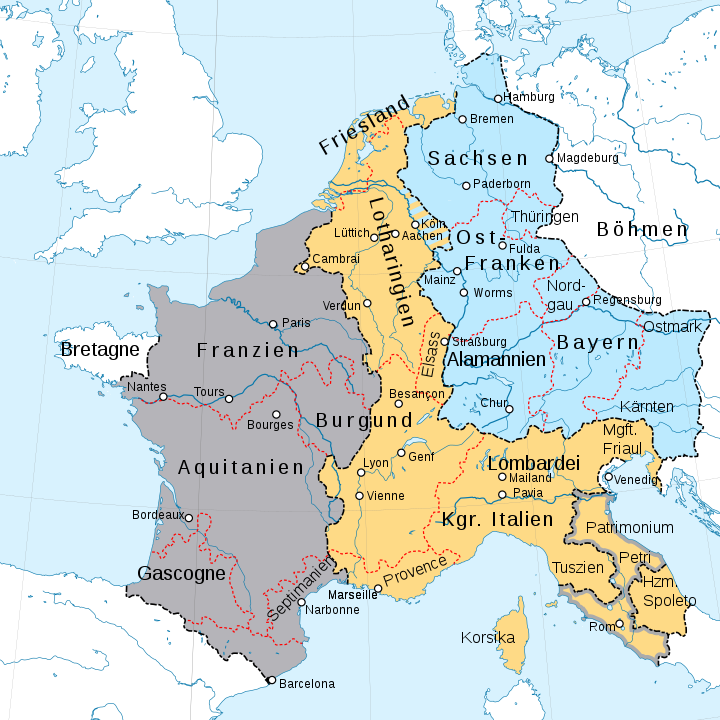
King Æthelwulf was of advanced age. His eldest son, Æthelstan, who was under King of Kent, Sussex, Essex and Surrey, appears to have died earlier, but he had many more sons - Æthelbald, Æthelberht, Æthelred and young Ælfred who had accompanied his father to Rome. 3/10 
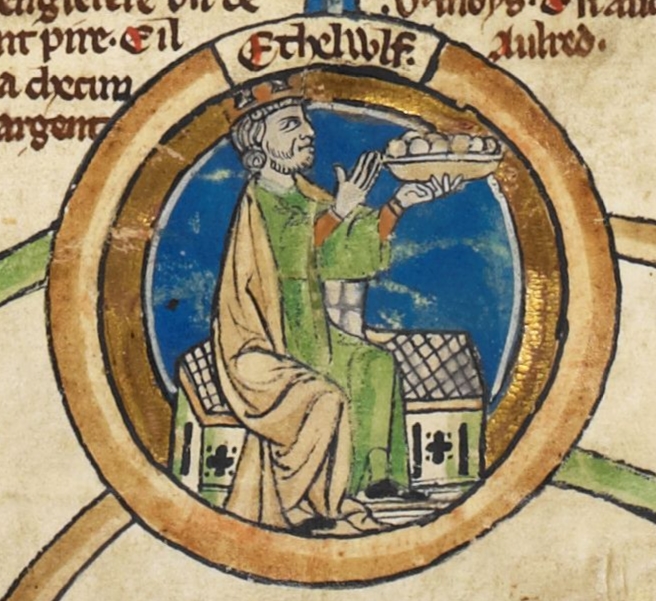
Æthelbald was in charge of Wessex when his father had gone to Rome. But with the arrival of a new Queen he appears to have gotten worried about his inheritance. He rebelled against his father, a rebellion which led to an informal division of the Kingdom. 4/10 
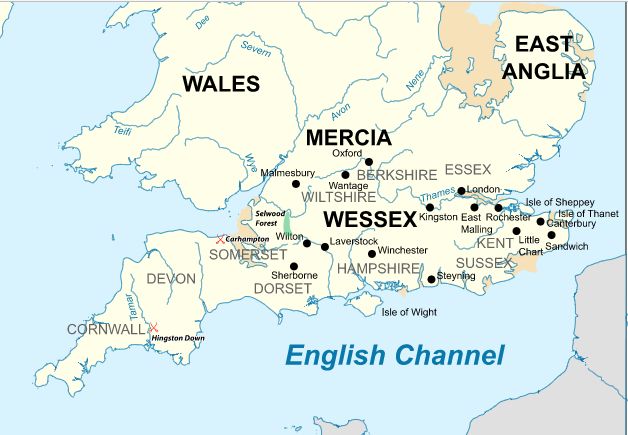
But the division was shortlived, since King Æthelwulf died in 858. The young widow, Judith, quickly found a new husband though; the new King of Wessex - King Æthelbald. But he died in 860. Aged 17 and twice widowed, Judith returned to West Francia. 5/10 
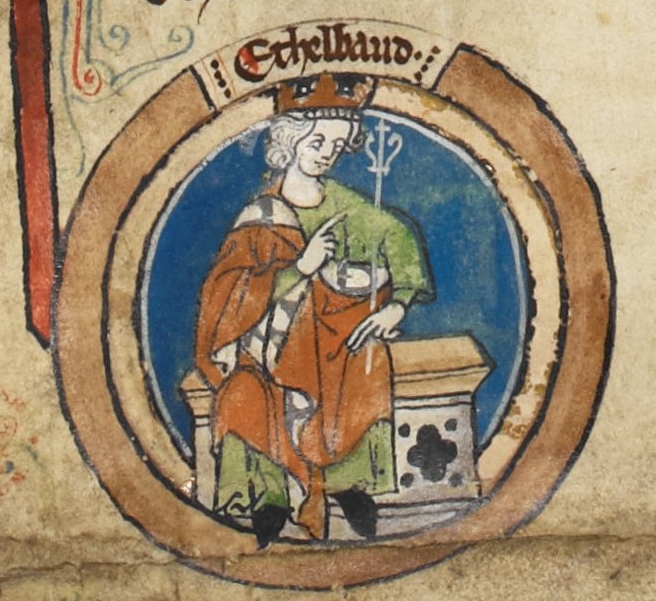
Before long the Princess found a new husband, a young warrior named Baudouin. But the King wasn't happy. They ran away first to the Vikings in Frisia, north of West Francia and later to Rome to plead their case. Eventually, father and daughter reconciled. 6/10 
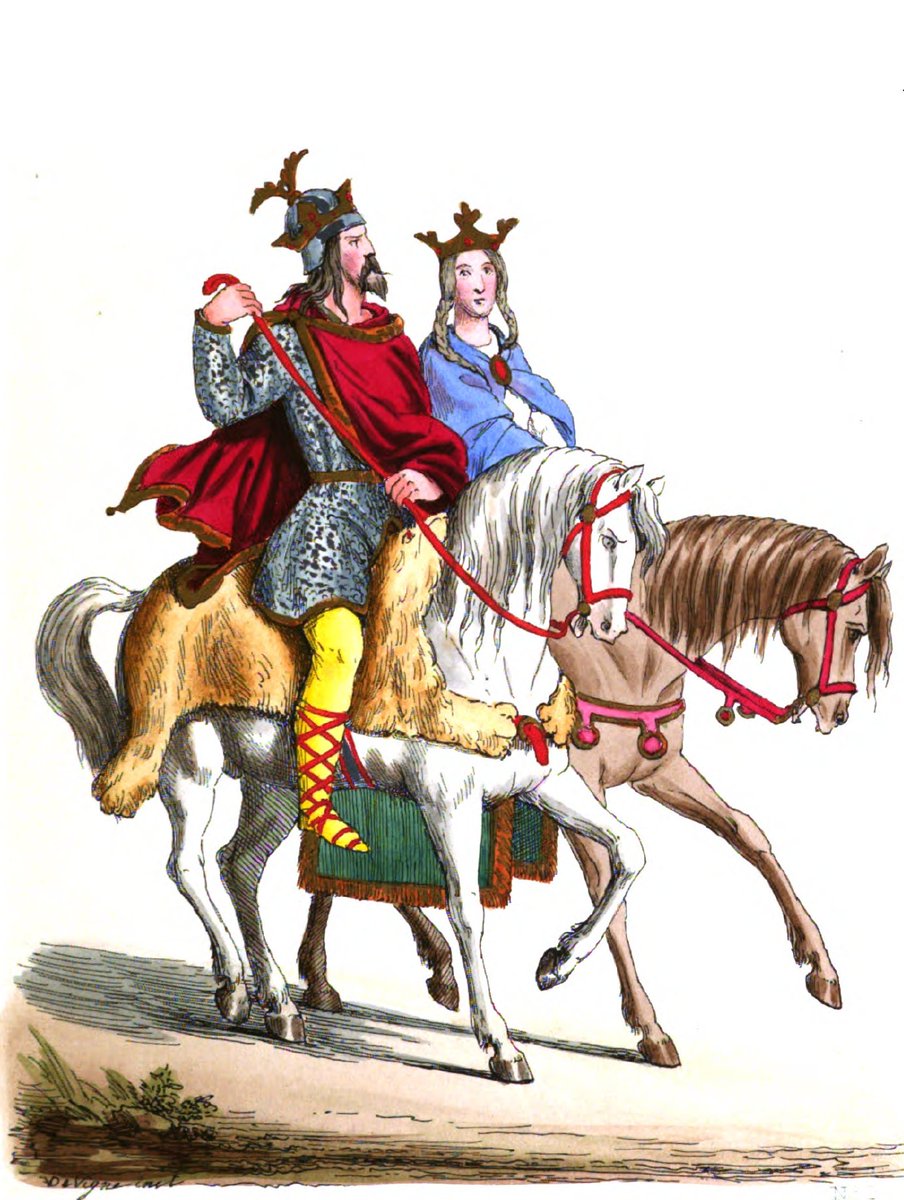
King Charles sent his new son-in-law to his northern frontier, creating a March (and later County) for him. It was a region constantly in danger of Viking raids. But Baudouin was up to the task and held on to Flanders, and created a stable province. 7/10 


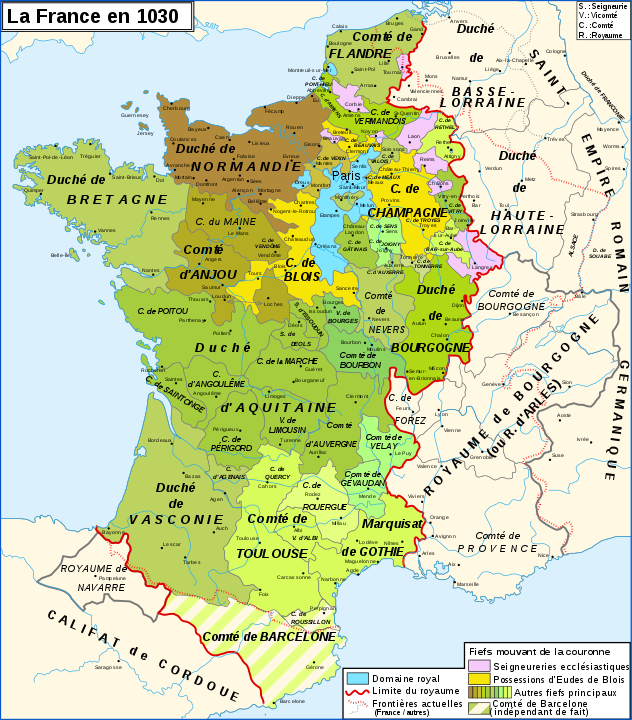
Judith died in 870 but Flanders would continue to flourish. Her son, Baudouin, would marry Wessex King Ælfred's daughter Ælfthyrth and the close association of Flanders and England, which Ælfred's descendants would go on to rule, would continue for many generations. 8/10 
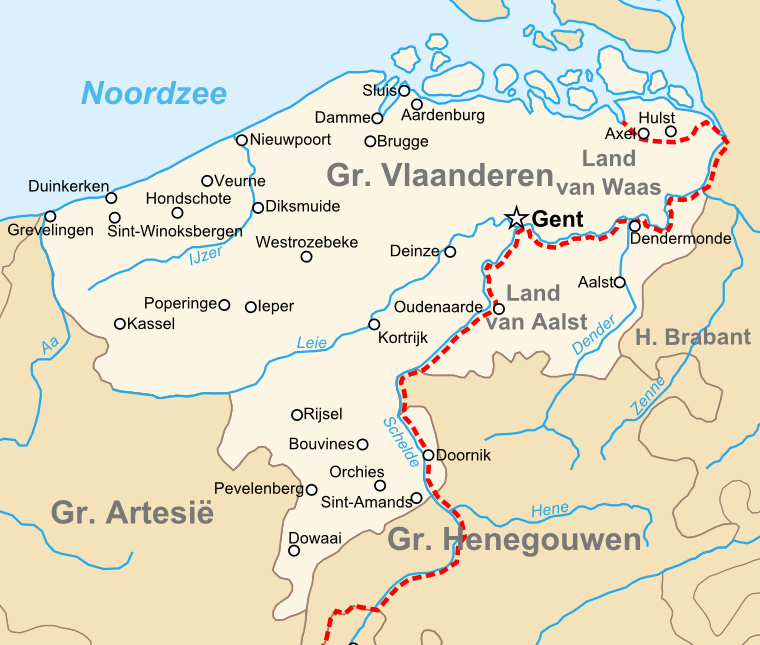
Judith's descendants would not only rule in Flanders, but also nearby Boulogne, Hainaut and briefly in Constantinople. Though its initial eastern boundary was set at River Scheldt, it expanded eastwards into what later became the Holy Roman Empire. 9/10 
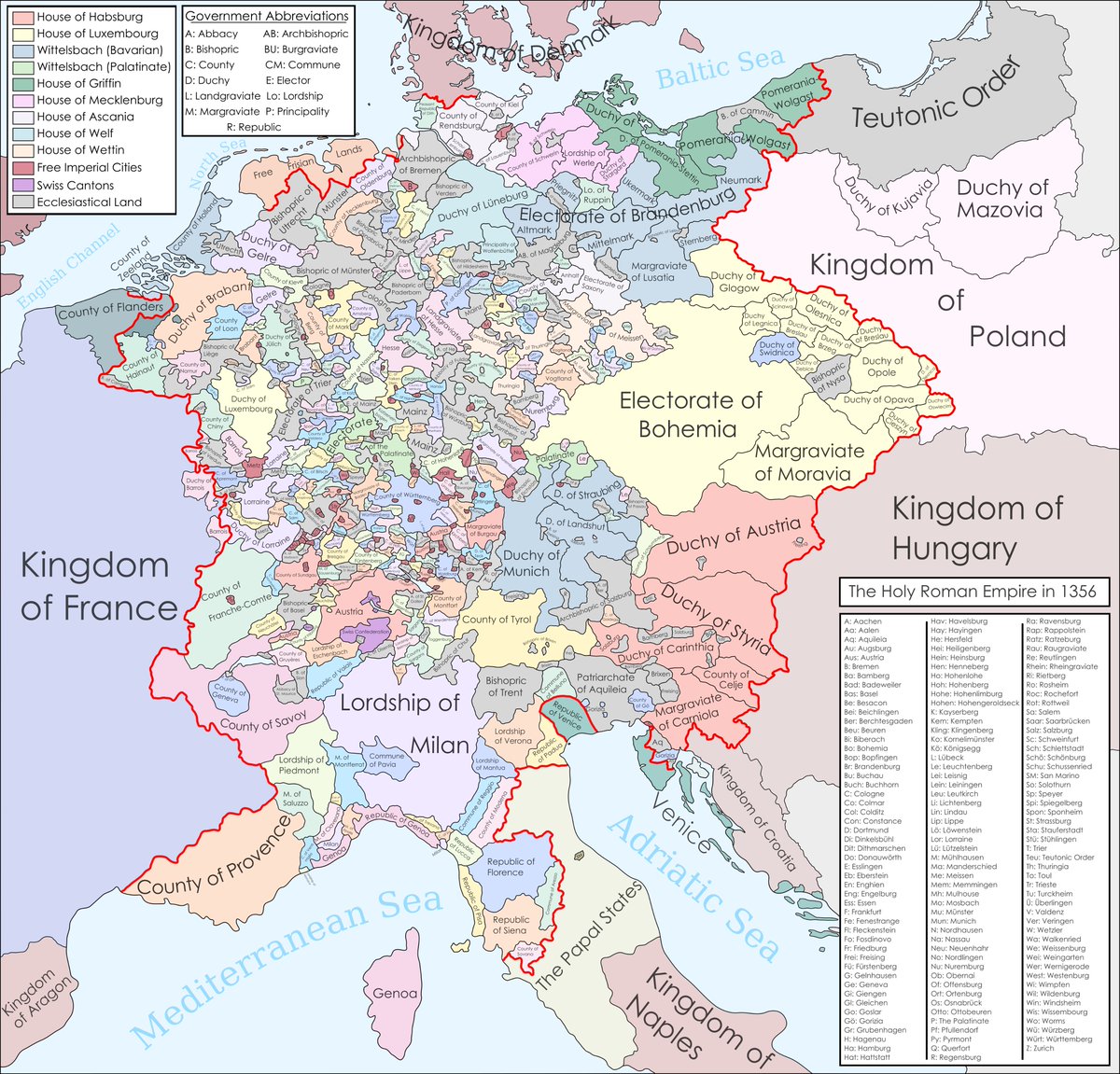
The tug of war between France and the Holy Roman Empire for Flanders would continue, while Flanders tried to be independent. But in 1493, Flanders was lost to France after the Habsburgs inherited it and defeated France to keep it. 10/10 
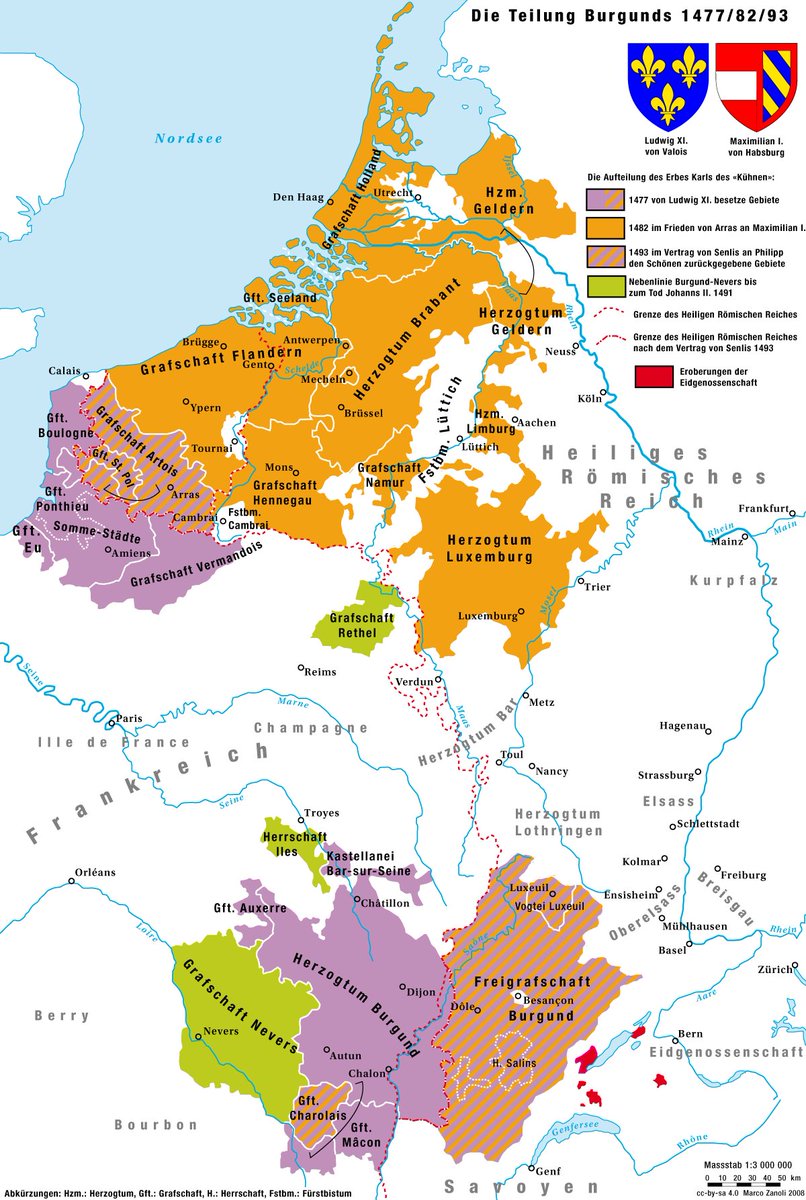
• • •
Missing some Tweet in this thread? You can try to
force a refresh



